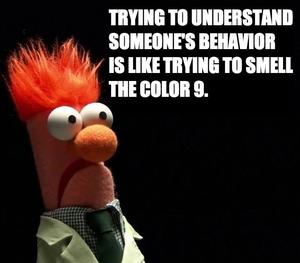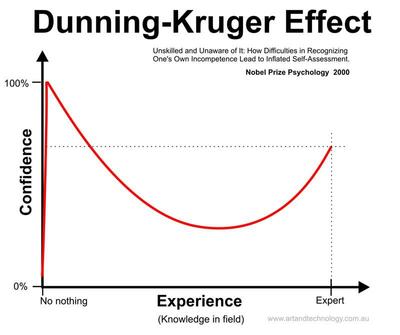A curated list of adages, psychological syndromes and behaviour explaining aphorisms.
Inspired by this issue and the awesome list thing.
Please read the Contributing Guidelines before contributing.
Among competing hypotheses that predict equally well, the one with the fewest assumptions should be selected
For each accepted explanation of a phenomenon, there is always an infinite number of possible and more complex alternatives, but simpler theories are more preferable because they are easily testable. This is a line of reasoning often used in daily life.
Never attribute to malice that which can be adequately explained by stupidity.
A special case of Occam's razor, the history of this aphorism is controversial, but the applications are endless. Miscommunications are often attributed to this aphorism in Open Source Projects.
If anything can go wrong -- it will.
People most often relate with If there is a worse time for something to go wrong, it will happen then., especially after the dawn of mobile communication (no coverage
right when you need it most) and the Internet (no connectivity, when you have to send
that one life-changing email.)
R: Ultimate collections of Murphy's Laws
As an online discussion grows longer, the probability of a comparison involving Nazis or Hitler approaches 1
In many newsgroups, it is a tradition in which whoever mentions the Nazis automatically
loses the debate that was going on, and the thread if finished there and then. Also, popularly
referred to as Playing the Hitler card.
It was difficult, after attempting a greater psychological understanding of why the Holocaust happened and how it was conducted, to tolerate the glib comparisons I encountered on the Internet (Usenet in those days) - Mike Godwin
R: Mike Godwin on 18 years of Godwin's law
R: slashdot.com, history and popular use
Bonus: an xkcd about this as well!
When the victim mistakes a lack of abuse as an act of kindness by the captor.
Traumatic bonding that is most common in kidnapping situations, where the hostages express sympathy towards the captor, to the point of defending the captors. It may be attributed to the natural selection process that let our hunter-gatherer ancestors solve adaptive problems.
Dunning-Kruger effect [DKE]
When unskilled individuals mistakenly assess their abilty to be much higher than is accurate
R: Dunning Kruger effect in Software Development
the phenomenon whereby higher expectations lead to an increase in performance
The idea behind this effect is that if a leader expects more of a follower, then the follower tends to improve their performance. Studies of this effect in action are hard to conduct because they are generally in an artificial, manipulated setting. Also, there is an argument that often the perception of a follower by the leader directly or indirectly affect the expectations that said leader has from the follower. This effect was shown to exist in schools in the Rosenthal-Jacobson study.
The phenomenon where lower expectations placed upon individuals leads to poorer performance
The Golem effect is the negative corrollary of the Pygmalion Effect: Supervisors with negative expectations will inadvertently produce behaviours that reduce the efficiency of their subordinates. This effect has been most rigorously studied in Classroom settings. Teachers treat students performing poorly with high negative bias, this in turn leads the students to perform poorly, reinforcing the teacher's belief. This is one of the most problematic consequences of Golem Effect in the Classroom. A few studies have also been made on the Golem effect in the workplace.
R: Seimnal 1982 Paper on Golem Effect
To the extent possible under law, Siddharth Kannan has waived all copyright and related or neighboring rights to this work.



